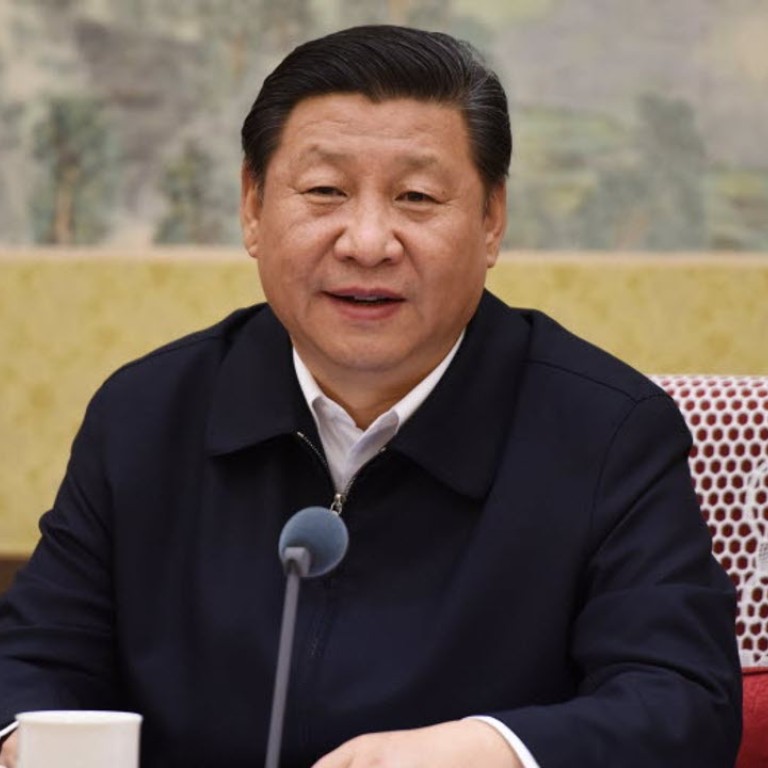
New | China’s President Xi Jinping calls on Politburo to follow his lead
Chinese president urges top decision-making body to stay loyal to the party in comments analysts say mark the launch of a rectification movement
China’s top Communist Party leaders have been warned to toe the party line and to ensure their family members steer clear of corruption.
President Xi Jinping (習近平) issued the stern warning yesterday, as a Politburo meeting announced that the sixth plenary session of the party’s top anti-graft watchdog, the Central Commission for Discipline Inspection, would be held on January 12-14.
READ MORE: China’s Communist Party considers code of conduct for senior cadres after purge of high-level officials
“Politburo members should stay in line with the Central Committee,” Xi told an earlier meeting of the country’s top decision-making group as he urged the 25-man body to “stick to the correct political direction and remain loyal to the party”, as well as to “consciously and actively follow the party leaders’ instructions”.
He also called on them to “strictly educate and supervise” their family members against corruption, advising them “not to feel any superiority in power and position”, according to a Xinhua report released late on Tuesday.
[Major policy] mistakes are more likely when dissenting views are silenced
Analysts say Xi’s call reflects his determination to strengthen his authority through the use of a rectification movement.
Urging the Politburo to toe the party line suggested division among the leaders, they said.
“This marks the launch of a party rectification campaign ... It is a call to all Politburo members to follow the leadership,” said Steve Tsang, a professor of contemporary Chinese studies at the University of Nottingham.
In theory, the Politburo proposes policies to be debated within and approved by the Central Committee, the party’s highest organ of power. But in practice, the Politburo and its seven-man Standing Committee is where the real power lies.
Tsang said Xi was now calling on the Politburo to accept and follow his lead on all policy matters. Resistance was expected, but Xi must be confident he would win, or he would not have made his remarks public, Tsang said.
Since taking office three years ago, Xi has embarked on a sweeping campaign against deep-rooted graft, taking down dozens of corrupt top officials.
READ MORE: PLA general who helped Xi battle graft in military retires
Analysts say Xi is also trying to unify the Politburo, which has been split into factions under his two predecessors, Jiang Zemin (江澤民) and Hu Jintao (胡錦濤).
Peidong Yang, a postdoctoral fellow with Singapore’s Nanyang Technological University, said that as Xi’s anti-graft campaign had encroached on vested interests in the party, it was now important for him to unify the party and consolidate his authority.
Xi’s remarks were made in a meeting this week for “criticism and self-criticism among comrades”, a Maoist practice. He urged the Politburo to hold firmly to their belief in Marxism, socialism and communism.
Yang said Xi’s emphasis on “mass line” ideology and his use of “criticism and self-criticism” appeared to have been inspired by late leader Mao Zedong’s (毛澤東) ideas of party governance.
READ MORE: Putt it out, player: China’s Communist Party tells members to avoid golf, ‘extravagant eating’, extra-marital sex and other ‘corrupt practices’
But while urging party leaders to check themselves was certainly a deterrence against graft, the leadership should rely on institutionalised systems to curb corruption in the long run, Yang said.
Tsang likened Xi’s move to Mao’s rectification campaign in 1942, in which the late leader consolidated his role within the party and implemented his adaptations of communism as the party’s guiding ideologies.
Xi’s move would further deter corruption, but its real aim was to ensure that the party would think, speak and act as one under his leadership, the professor said.
“But it will also significantly increase the party’s risk of making a major policy error [as] mistakes are more likely when dissenting views are silenced,” Tsang said.

